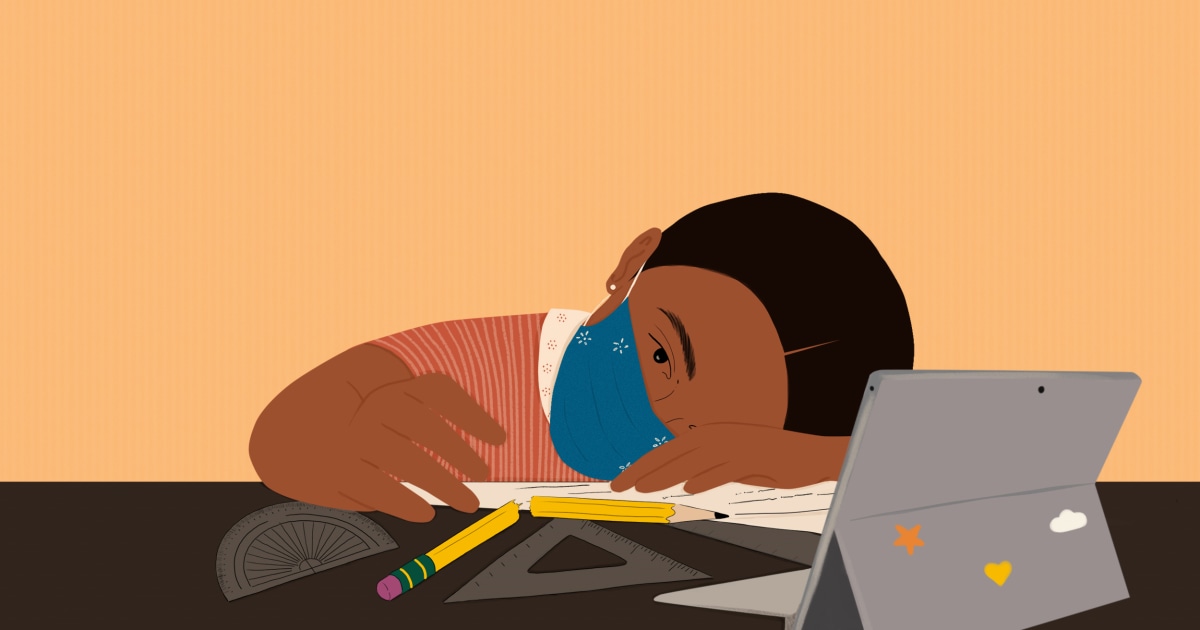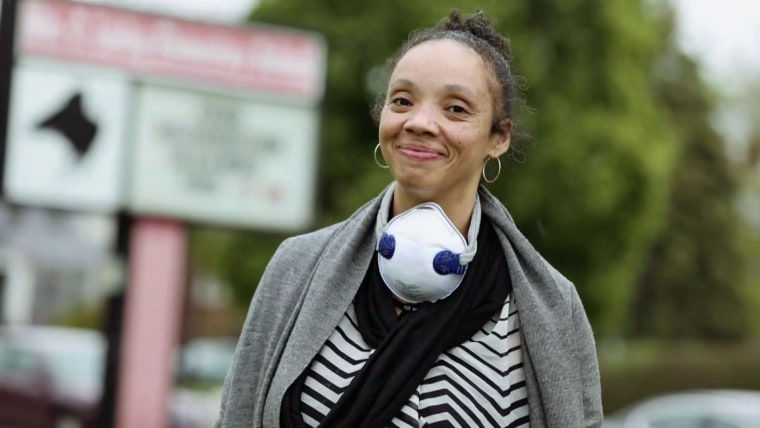
When the Covid-19 pandemic required the closure of the majority of U.S. schools last spring, students were tossed into brand-new and unfamiliar ways of learning. Special education students and children learning English lost assistance that their schools struggled to offer online. Many students had no access to computers or web and were completely cut off from their teachers.
The true toll these disturbances have actually taken on trainee learning won’t be understood for months or years, but brand-new reports from nationwide education-testing organizations have actually begun to use an early look at that impact.
The latest is a report from NWEA, previously the Northwest Evaluation Association, which evaluated the outcomes of tests offered to nearly 4.4 million U.S. students in grades 3 through eight this fall and found that a lot of fell short in math, scoring approximately 5 to 10 percentile points behind students who took the very same test last year.
For more on this story, enjoy NBC’s “Today” reveal this morning.
While a majority of trainees did better than expected in reading– scoring at levels similar to typical nonpandemic years– this wasn’t true for Black and Hispanic students and those who attend high-poverty schools. Those groups of trainees saw slight decreases, suggesting the pandemic has worsened long-standing instructional disparities, possibly setting children who were currently behind their white and more upscale peers even further behind.
” It’s a factor for concern and it’s a factor to actually focus our attention on assisting capture kids up,” said Megan Kuhfeld, an NWEA senior research scientist and the lead author of the study.
Kuhfeld and her associates examined ratings from NWEA’s MAP Development assessments, which countless U.S. schools offer to trainees multiple times a year to track their progress in math and reading. They discovered proof that pandemic-related school closures have robbed some vulnerable trainees of crucial skills that could hamper their progress unless their parents and instructors act rapidly to help them catch up.
” They could fall further and further behind if they have holes in their learning,” Kuhfeld stated, keeping in mind that, for instance, it’s tough to find out to increase fractions if you haven’t mastered including and deducting them.
But more worrisome than the findings themselves is the truth that they just record part of the image. The study was restricted by the reality that a high variety of students– 1 in 4– who generally take the NWEA’s utilized MAP assessment in the fall didn’t take it this year.

Trainees might not have been tested due to the fact that they couldn’t get in touch with their online classes on test day. They may have been absent from school because of illness or quarantines. They might go to schools that chose not to test at all this year, offered the many new difficulties schools deal with since of the pandemic. Or the students missing from NWEA’s information might not be in school at all.
Full coverage of the coronavirus break out
Lots of districts throughout the country have reported substantial drops in enrollment this fall, with one research study estimating that 3 million of the nation’s most vulnerable children– those who are homeless, in foster care, have impairments or are discovering English– might be displaced from school.
That implies that while NWEA scientists found some great news– trainee ratings in both reading and math was available in higher than NWEA predicted in an earlier report— it’s tough to understand how considerable that is.
It’s possible students are discovering remotely better than had been feared, or that parents have actually been able to supplement their knowing with additional lessons, Kuhfeld stated. Another huge element is the students who didn’t take the test– and who would have been more most likely to post lower scores.
” The trainees we’re most worried about are most likely the ones who are missing out on,” Kuhfeld stated.
NWEA’s findings echo the outcomes of another nationwide testing company, Renaissance Knowing, Inc., which reviewed ratings from more than 3 million U.S. trainees in grades one through 8 on another widely used school evaluation called Star and discovered that reading ratings were down somewhat and mathematics scores were down significantly compared to a normal year. Renaissance, which also noted a drop in the number of trainees who took its assessments this fall, similarly found that Black, Hispanic and Native American trainees, along with rural students and those who attend schools that serve high-poverty populations, lost more ground than students with more benefits.
For many parents and teachers, this year’s scores was difficult to see.
” It made me seem like I was stopping working as a parent,” stated Angélica González, a mom of 3 from Seattle whose middle kid, a 3rd grader named Lolly, had always mastered school until her classes went virtual last spring.
Lolly, who has attention deficit hyperactivity disorder, or ADHD, found being in front of a computer system screen to attend classes so demanding, González said, that she was crying every day. González eventually offered Lolly consent to avoid those remote classes, deciding to teach her daughter herself rather. That was the best choice she could produce her child’s mental health, González said, but when the lady returned to school this fall, making the most of a program that let some trainees enter the school structure for their online classes and to get assist from school staff, Lolly’s MAP ratings showed her reading abilities had actually hung back to where they ‘d been at the start of 2nd grade in 2015. Her math scores, slightly below the nationwide average, had not budged since last winter.
González worries about the long-term consequences of the disruption, specifically as the Catholic school Lolly participates in on a scholarship just recently reacted to rising Covid-19 rates by ending the alternative to take classes from inside the school. Lolly was better able to focus on her online classes in a classroom with school staff on hand to assist. Now, she’s back home once again and is having a hard time as much with remote knowing as she carried out in the spring, González said.
” I understand kids can capture up, but it’s going to take tutoring and resources and money, and we do not even do that for kids who are having a hard time today,” González said.
Download the NBC News app for full protection and signals about the coronavirus break out
She herself had been homeless in her youth and bounced around from school to school. She was eventually able to end up high school in spite of becoming a teen mommy and went on to college. She recently finished from law school and is working as a paralegal until she becomes a certified attorney. The spaces in her education have dogged her, she said.
” Even to this day, things are way more difficult because I didn’t have that structure,” González stated.
She recalled teachers treating her differently due to the fact that she was behind her grade level and concerns that could happen to Lolly.
In Dallas, instructor Kevin Culley has similar concerns for his trainees at Joseph J. Rhoads elementary school.
He anticipated to see some lower-than-usual scores when his third grade math students took the MAP assessment this year, however he didn’t expect to see that so many of them were half a grade level behind.
” Those scores were a little frightening,” he stated.
He’s implemented interventions, revamping his lessons to include fun, vibrant demonstrations and competitive mathematics games that teach third-grade concepts, in addition to a second-grade evaluation, to both his in-classroom trainees and those who enjoy him on a livestream from their homes. However he worries about what might take place to his trainees if they do not capture up prior to they take Texas’ high-stakes state STAAR examination in the spring. The exam can affect whether poor-performing students advance to the next grade, and scores are used to evaluate instructors and elementary school.
” The test is something that looms over their heads, and I really am worried about how this is going to impact their self-confidence,” Culley stated. “When you have broken a child’s confidence, it’s difficult to get them to continue to push forward.”
No comments:
Post a Comment